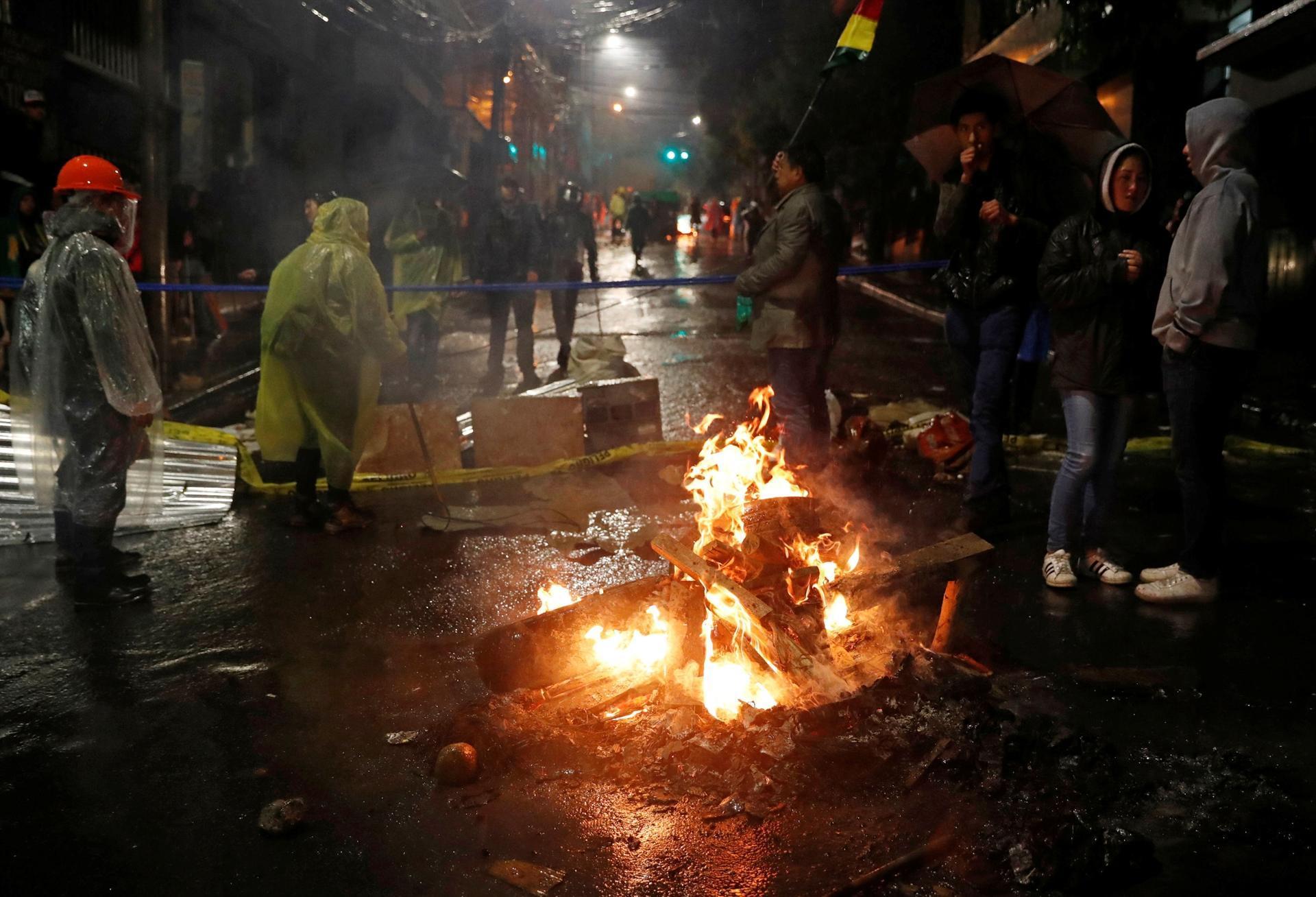
Turkey on Nov. 11 expressed concern over the political unrest in Bolivia in the wake of the president's stepping down.
“Turkey attaches importance to the principle that governments come into power through a democratic process,” the Foreign Ministry said in a statement.
“In this context, Turkey is deeply concerned over the developments in Bolivia that have resulted in the resignation of President Evo Morales,” it said.
The ministry voiced hope that the tension in the country is reduced, the life returns to normalcy and the democracy prevails in Bolivia in line with the choice of Bolivian people to reestablish peace, tranquility, and stability through renewed elections.
Meanwhile, Russia accused Bolivia's opposition of unleashing violence in the South American nation and said it looked like the government's hopes for dialogue had been swept aside by an orchestrated coup.
Bolivian President Evo Morales said on Nov. 10 that he was resigning to ease violence that has gripped Bolivia since a disputed election, but stoked fears of more unrest by saying he was the victim of a coup and faced arrest.
Bolivia's Morales resigns after protests, lashes out at 'coup'

Moscow has commercial interests in Bolivia where Russia's state nuclear agency is building a nuclear centre.
Morales visited Moscow for talks with President Vladimir Putin in June, pointing to Bolivian gas and lithium as areas for cooperation.
"We are alarmed by the dramatic development of events in Bolivia where a wave of violence unleashed by the opposition has not allowed Morales to complete his presidential mandate," the Russian foreign ministry said in a statement on Nov. 11.
"It is a matter of deep concern that during the domestic political crisis in the country, the government's readiness to seek constructive solutions through dialogue was swept away by the development of events in the mould of an orchestrated coup."
The Kremlin called for calm in the country and said it hoped foreign powers would not try to meddle in the crisis. Morales has not been in contact with Moscow or requested asylum there, Kremlin spokesman Dmitry Peskov told reporters.
Morales announced his resignation after the Bolivian military called on him to do so following violent clashes and weeks of post-election protests.
Margarita Simonyan, chief editor of Russia's state-funded RT television station, took to Twitter in the early hours of Nov. 11 to offer Morales a job as a presenter on its Spanish language service.
Spanish Foreign Minister Josep Borrell also voiced Spain's concern saying the country is worried by the power vacuum in Bolivia following the resignation of Morales.
"We are worried because we don't know who is going to take on this process and because it was the intervention of the army calling on the president to step down that has created this power vacuum," Borrell told reporters on Nov. 11.
Borrell, who takes over as the European Union's diplomacy boss in December, called for elections to be held in the country as soon as possible and for security to be preserved for all Bolivians, including Morales and his aides.
U.S. urges civilian leadership to maintain control in Bolivia
The United States is monitoring the political situation in Bolivia and calling on civilian leadership to maintain control after Morales's resignation after protests against his disputed re-election last month, a State Department official said, Reuters reported on Nov. 11
"It is crucial that the constitutionally delineated civilian leadership maintain control during the transition," the official said on customary condition of anonymity.
"We call on everyone to refrain from violence during this tense time and we will continue to work with our international partners to ensure that Bolivia's democracy and constitutional order endure."
EU calls for calm
The EU's diplomatic chief also urged all sides in Bolivia to exercise "restraint and responsibility" in a statement on Nov. 11.
She expressed the hope that they would "lead the country peacefully and quietly to new elections, credible elections that can let the people of Bolivia express their democratic will".
Cuba, Venezuela in solidarity with Morales
Already on Nov. 10, the left-wing governments of Venezuela and Cuba had condemned Morales' departure as a coup.
Cuba "expresses solidarity with its brother president Evo Morales," Foreign Minister Bruno Rodriguez said in a tweet, describing Morales as "a protagonist and a symbol of the rights of the indigenous peoples of our Americas".
Venezuela's President Nicolas Maduro condemned what he called a "coup d'Etat" in a post on Twitter.
Argentina's president-elect Alberto Fernandez, who takes office on December 10, also referred to a "coup d'Etat" in a Twitter post.
But Brazil's right-wing President Jair Bolsonaro said: "The allegations of fraud in the elections led to culminated in the resignation of President Evo Morales."
The lesson to draw was the need for a transparent election system, he added.
Morales stepped down after three weeks of demonstrations over his disputed re-election, which Latin American observers said was marred by irregularities.
He became Bolivia's first indigenous president in 2006 and won a controversial fourth term when he was declared the winner of the October 20 presidential election by a narrow margin.
The opposition cried foul and after an audit of the election the Organization of American States called on Nov. 10 for the vote to be held again.
Morales called a new election, but after the commanders of the armed forces and the police joined calls for him to step down, he announced his resignation.